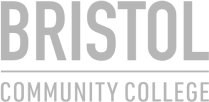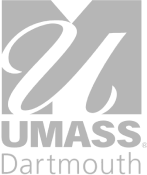To document your personal growth and set visionary goals, you are asked to complete introspective Self- Narratives at the 6 months, 1 year, and 3 year marks. Drawing from the Questionnaire and identified Capstone Exemplar KSAs below, develop a concise narrative, including examples, as indicators of your Capstone completion for the chosen capstone timeframe.
Self Narratives
CAPSTONE EXEMPLAR KSAs
Below are examples, and the specific KSAs that you complete will depend on your professional tier, individual interests, goals, and college strategic plan.
Foundational
Note: can be Intermediate or Advanced depending on professional/experiential ARE KSAs
1 KSA completed, such as:
- Writing about noticing and investigating the reality and impact of ARE in the classroom/ workplace and recognizing the context and focus of ARE initiatives.
Goal:
- You might identify one area of ARE that you would like to learn more about and develop a 1-year plan to learn more about it.
Tool:
- You might plan to use any Tool found in this guide to advance your ARE competence.
Intermediate
Note: can be Foundational or Advanced depending on professional/ experiential ARE KSAs
3 KSAs relevant to professional tier completed, such as:
- Writing about sensing the reality and impact toward ARE in the workplace
- Writing about the ways you can draw on research evidence to inform ARE work
- Writing about the consideration of using equity-minded approach options based on evidence of what works in ARE
4 Goals:
- One might be able to develop a plan to address the impacts of implicit bias and microaggressions as structural/ systemic barriers and obstacles that may include racial trauma in your workplace
- One might be able to…use unattained KSAs or challenges or barriers to ARE impacting your work as inspiration
- One might be able to…use unattained KSAs or challenges or barriers to ARE impacting your work as inspiration
- One might be able to…use unattained or challenges or barriers to ARE impacting your work as inspiration
3 Training Tools:
- Complete Train the Trainer Modules in the PD Toolbox and Mentor 1 colleague on ARE competencies
- Complete Syllabus Overhaul Modules
- Use the Microaggressions in Higher Education (MHE) Scale to assess the prevalence of microaggressions in your workplace
Advanced
Note: can be Foundational or Intermediate depending on professional/ experiential ARE KSAs
6 KSAs relevant to professional tier completed, such as:
- Writing about your understanding of the ARE problem or issue to be addressed
- Writing about your knowing what needs to change and what doesn’t
- Writing about your understanding of where/ how/ why improvement is needed
- Writing about your knowing how progress is recognized
- Writing about your developing progress markers to indicate whether you are on the right track in acknowledging remedying, and repairing biases
- Writing about your role in realizing ARE responsiveness to racial inequities at your site
5 Goals:
- Become a “Train the Trainer” and help others learn about ARE
- One might be able to…use unattained KSAs or ARE issues impacting your work as inspiration
- One might be able to… use unattained KSAs or challenges or barriers to ARE impacting your work as inspiration
- One might be able to…use unattained KSAs or challenges or barriers to ARE impacting your work as inspiration
- One might be able to… use unattained KSAs or challenges or barriers to ARE impacting your work as inspiration.
Training Tools:
- Use the ARE Toolkit to participate in Train the Trainer ARE professional development to sustain CONNECT efforts inside and outside of the Consortium
- Present ARE Training 2x a year
- Identify PD aligned with advanced ARE competence reflected in the Models’ developmental level schema.
Achieving Racial Equity
PARTNER SCHOOLS





GET IN TOUCH
Contact Stacey Kaminski, Ed.d with questions about Achieving Racial Equity training and self-assessments.





